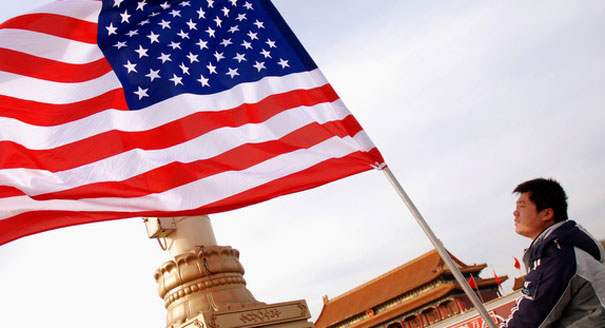Registration
You will receive an email confirming your registration.
The U.S. pivot to Asia has marked a new kind of U.S.-China bilateral relationship. As the United States decreases its involvement in the Middle East and China rises as an economic power, the two Pacific powers must adjust to their new dynamic and find areas of mutual interest to cooperate.
The Carnegie-Tsinghua Center for Global Policy and the Royal Norwegian Embassy in Beijing co-hosted a lecture by Dan Blumenthal, director of Asian Studies at the American Enterprise Institute, on the future of U.S.-China relations. Carnegie-Tsinghua’s Paul Haenle moderated.
Understanding Changes to China’s Foreign Policy
Blumenthal stated that foreign policymakers are dealing with not one, but three different Chinas. He questioned whether or not all three versions of China can continue to coexist over the long run.
- China’s Three Identities: Blumenthal’s research focuses on how three distinct identities for China can coexist. The first identity is a China that circumscribes U.S policy-making and focuses on China as a rising power. The second identity is a China that is a post-modern state that struggles with the growing external influence of globalization. The third identity is China as a modern imperial power that is little understood.
- Peaceful Co-Existence: Blumenthal explained that all of China’s identities currently coexist peacefully. He added that China defied all kinds of traditional international relations categorization. However, the future stability of China’s ambiguous identities is in question.
- Domestic Stability: A diplomat from the Dutch embassy noted that maintaining internal stability is a key concern for the Chinese government and impacts foreign policy. Blumenthal agreed that this was a top concern for the Chinese government but emphasized that Beijing was primarily concerned with the idea of being encircled or being undermined by the United States in the Asia-Pacific region. This has been the main factor in China’s foreign policy, he contended.
U.S. Rebalancing to Asia
Debate is still wide-spread as to the cause, implications, and potential outcomes of the U.S rebalance to Asia, Blumenthal said.
- Two Years On: A member of the Australian Embassy’s defense attaché office asked whether there had been any changes to the initial interpretation by the Chinese of the pivot as a U.S. attempt to encircle China and impede its rise. Blumenthal responded that although the United States has cut military spending, there are still fears in China over an excessive deployment of U.S. troops in the Asia region.
- Reality of the U.S. Influence: According to Blumenthal, the United States is actually not exercising a great deal of power in the Asia-Pacific region. He added that there is a growing isolationist sentiment within the United States. If the United States decided to downsize its involvement in the region or completely remove its military presence from Asia, Blumenthal argued that there would be a significant security vacuum within the region.
Cooperation and Conflict
Given the perception of intense competition between the two powers, Blumenthal concluded that China and the United States must seek improved cooperation in areas of mutual benefit for the sake of continued growth and prosperity.
- Military-to-Military Cooperation: Haenle asked how the United States could engage China’s military more. Blumenthal responded that China must also want to engage in military cooperation and be equal partners for greater military-to-military ties to grow.
- Potential Conflict: A representative of the UN Development Program raised the issue of China’s search for energy resources abroad and asked whether this could lead China into conflict with other competing powers. However, he also noted that the shale gas revolution is redefining the current geo-political landscape, so there should be minimal conflict for energy resources overseas as the United States edges its way to energy self-sufficiency.
- Energy Cooperation: Blumenthal added that energy is a main area for cooperation between China and the United States. Energy policy is an area where the United States can encourage Chinese investment and improve relations, he stated. In its search for resources, China now depends on oil from several volatile, unstable regions. Import and investment from the U.S. energy sources could provide relief and stability to China and improve bilateral relations, Blumenthal concluded.
